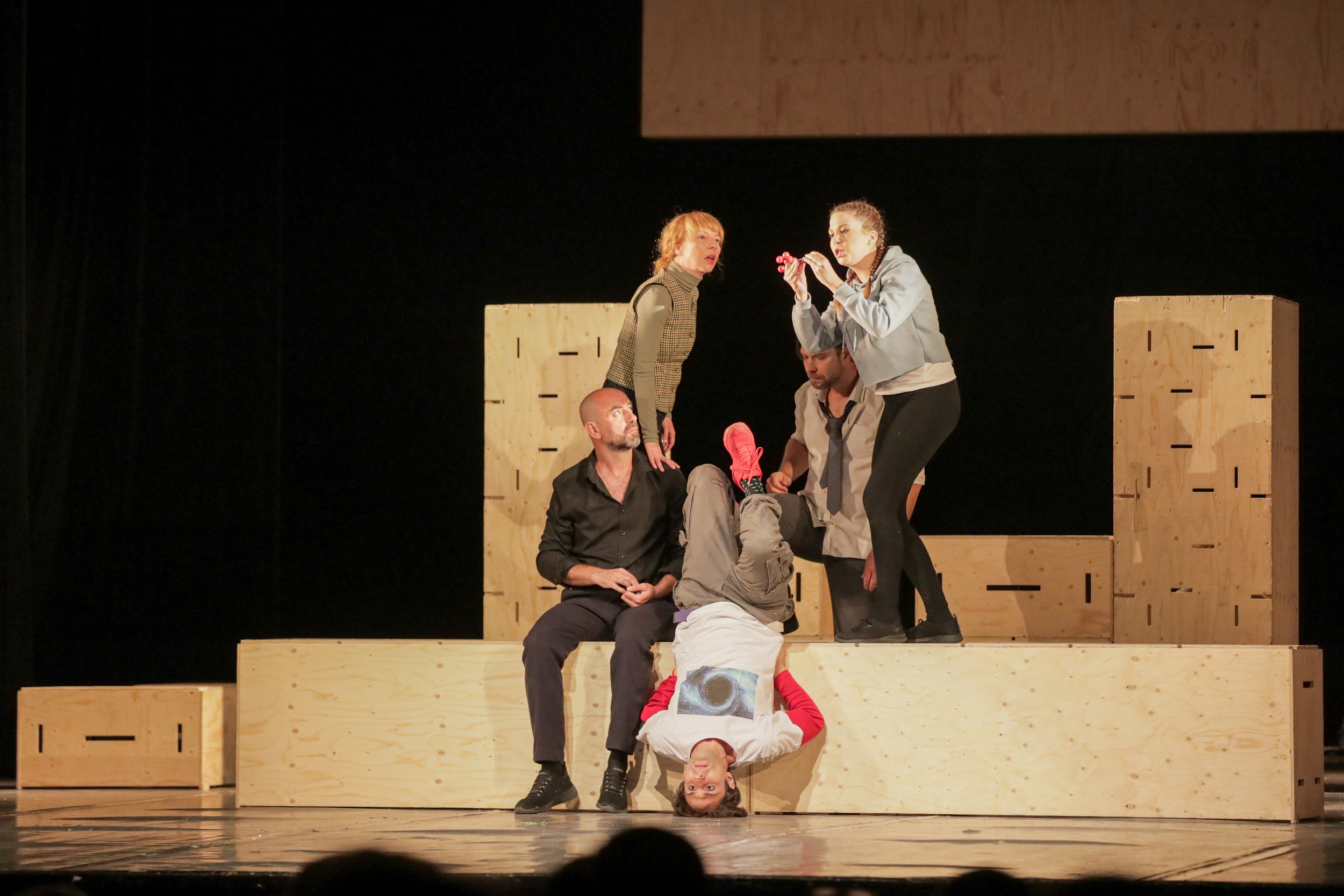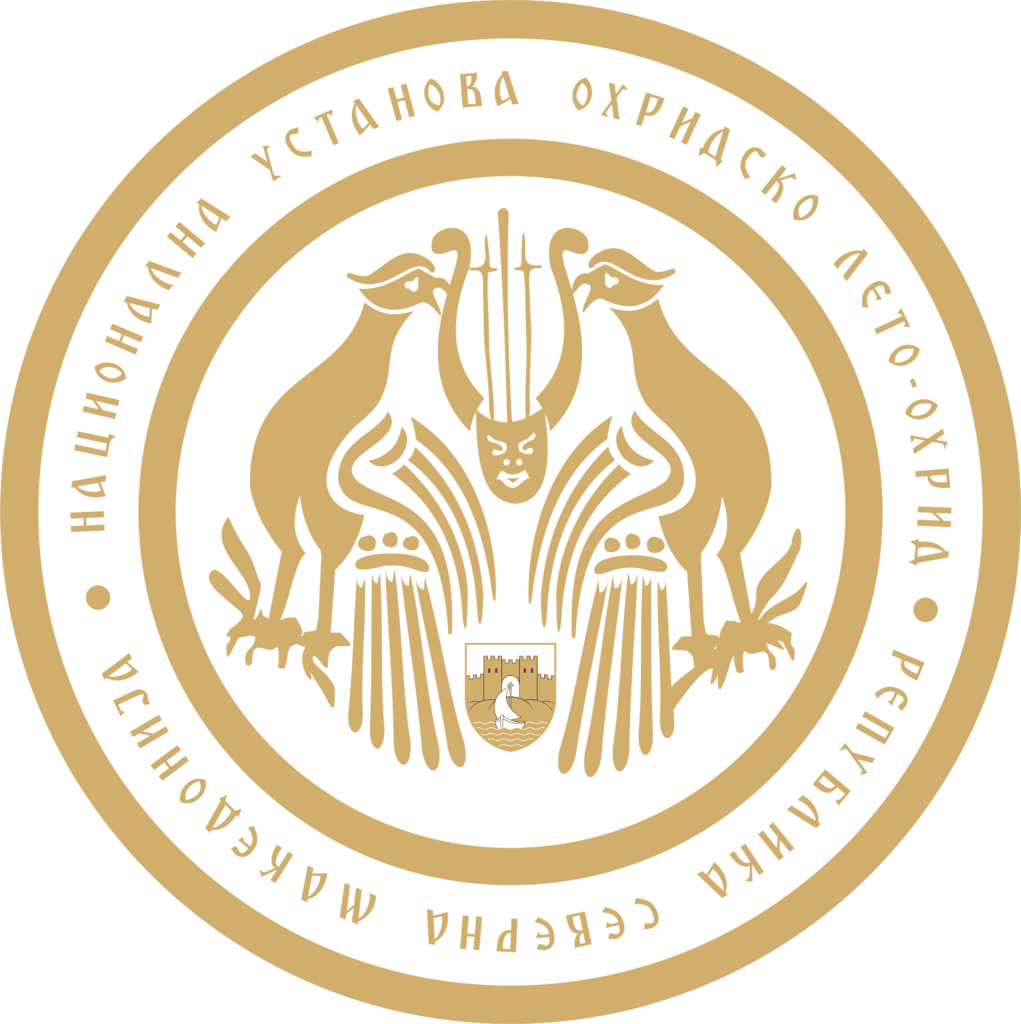
The theatre text “The Curios Incident of the Dog in the Night Time” by Simon Stephens – an adaptation from the same-named novel by Marc Haddon from 2003, which has gained vast popularity in the part years and has won 17 prestigious awards, among which the Whitebread Award – is among those phenomena making theatre worldwide a “single” stage for all. Starting from its primal premiere at the London National Theatre in 2012, through the settings in the London’s “West End”, Mexico, Israel, South-African Republic, Japan, Australia (tour around the major cities), the New York’s Broadway, up until the premiere at the end of last year on the stage of NI Drama Theatre – Skopje, shows the relevance of the theme and its capability to incorporate motifs of the “special, “different”, “excluded”, “mocked”, “underestimated”. Or, briefly, of the autistic people.
However, the text of this play, as much as it speaks of their needs, it is even louder about their hidden and underestimated capabilities. It openly corresponds with the tradition of detective novels (Sherlock Holmes), but also with tackling the critical social neuralgic points the way the novelist Hamon and his contemporaries in sensibility do, such as Hanif Kureishi (the cult novel “Buddha of Suburbia”), Nick Hornby (“Fever Pitch”, “High Fidelity”, “About a Boy” etc).
Such social sensitivity is more pliable for, we can say, an expression in the scene explosion of the story in a “Brecht key”, revealing it from different angled, so a viewer can come to an objective “verdict”. The performance by Zoja Buzalkovska at Ohrid Summer Festival on the theatre stage in the Centre of Culture “Grigor Prlichev” lasting almost three hours, was a great opportunity to confirm it.
With the pseudo-documentary style in a playwright structure, “The Curios Incident of the Dog in the Night Time” opens an opportunity for making “drama in drama”. The action focuses on the 15-year-old Cristopher John Francis Bunn, a Math genius with an unusual disorder from the autistic spectrum – an Asperger syndrome – and has never before gone further than the end of his street of his hometown Swindon. Cristopher has an incredible talent for Mathematics and memorising, but hates being touched and hates yellow colour: as an illustration, something similar to the lead character in the Hollywood blockbuster from the end of the 80s, “Rain Man” by Barry Levinson, starring Dustin Hoffman in the lead role, Tom Cruise and Valeria Golino. Despite all those talents, Cristopher has difficulties functioning out of his micro-world, where he feels safe to a certain point.
Stephen’s dramatization replaces the first-person narration from the novel, so his text is a mosaic composed of the different perspectives of Cristopher, his teacher, his father, his mother, the neighbour…
Cristopher (Damjan Cvetanovski) finds Wellington, his neighbours’ dog, killed with a garden fork, and the neighbour, Mrs Shears (Jasmina Vasileva) initially accuses him. The police release him with a note of caution. Wanting to find out the murderer of the dog Wellington, against the advice of his father Ed (Aleksandar Stepanuleski), Crostopher starts his own investigation, at the beginning naïve as a kid’s play, which will reveal his family secrets. Despite being on the verge to achieve his biggest success at school under the mentorship of the teacher Siobhan (Trajanka Ilieva – Veljikj), who is his fairy, Christopher persistently “sniffs around” as a dog, and writes everything down in a notebook. The stricter his father ban is, the greater Christian wish to reveal his family relations becomes. He finds the letters from his mother Judy (Emilija Micevska Trajkovikj), about who his father said that was sick and died.
But, after the granny from the neighbourhood, Mrs Alexander (Sonja Stamboldziska) reveals to him that his mother had an affair with Roger Shears (Filip Trajkovikj), the owner of the dog Wellington, and she left with him, Christopher, besides all inner social obstacles, heads to London. He wants to find his mother and live with her, but will she find strength for motherhood Christopher is in need for? And will his father repentance about his previous behavior be enough for forgiveness by Christopher?
Oikos is an ancient term noting a basic social unit, household or a family (inheritance) line, or simply a house/home, and seems to be made for explaining the setting of “The Curios Incident of the Dog in the Night Time”: what is family and what is the meaning of home? And, more specifically, what kind of home and environment an autistic person like Christopher and many more around us, visible or less visible, need?
Zoja Buzalkovska (Skopje, 1971), theatre director and professor of Art play and Theatre Directing at the Faculty of Drama Arts – Skopje, with about 20 directed plays of contemporary and classic playwrights in her author portfolio, in all relevant national theatre houses, but also freelance scenes, has not missed the opportunity to merge her professional challenges in her explorations in directing and acting as a professor and theoretician.
The actor Damjan Cvetanoski is a true revelation: he plays the leading role Christopher, but also excellently “plays” with the role wholeheartedly in his role-study. The remaining actors Stefan Vujisikj, Zlatko Mitreski and Nela Pavlovska, playing several roles, just as their other colleagues, only add up to this mosaic of creative performances.
The quest of thet perfect, utopic oikos in “The Curios Incident of the Dog in the Night Time” has almost frenetic scenography rhythm, (Konstantin Trpenoski), through the minimalist solution with ten-something rectangular and cubic boxes of the nude scene, which constantly make and unmake Christopher’s micro-cosmos. Such are the costumes (Elena Vangelovska and Rade Vasilev), who are functional tokens of ten-some characters through the choreography and free running technique (Simon Simonovski).
Of course the play “The Curios Incident of the Dog in the Night Time” has educational function in enlightening the vulnerable categories and raising the awareness for their needs, but all that is only an add-up given by the creative image on stage.
Stojan Sinadonov

